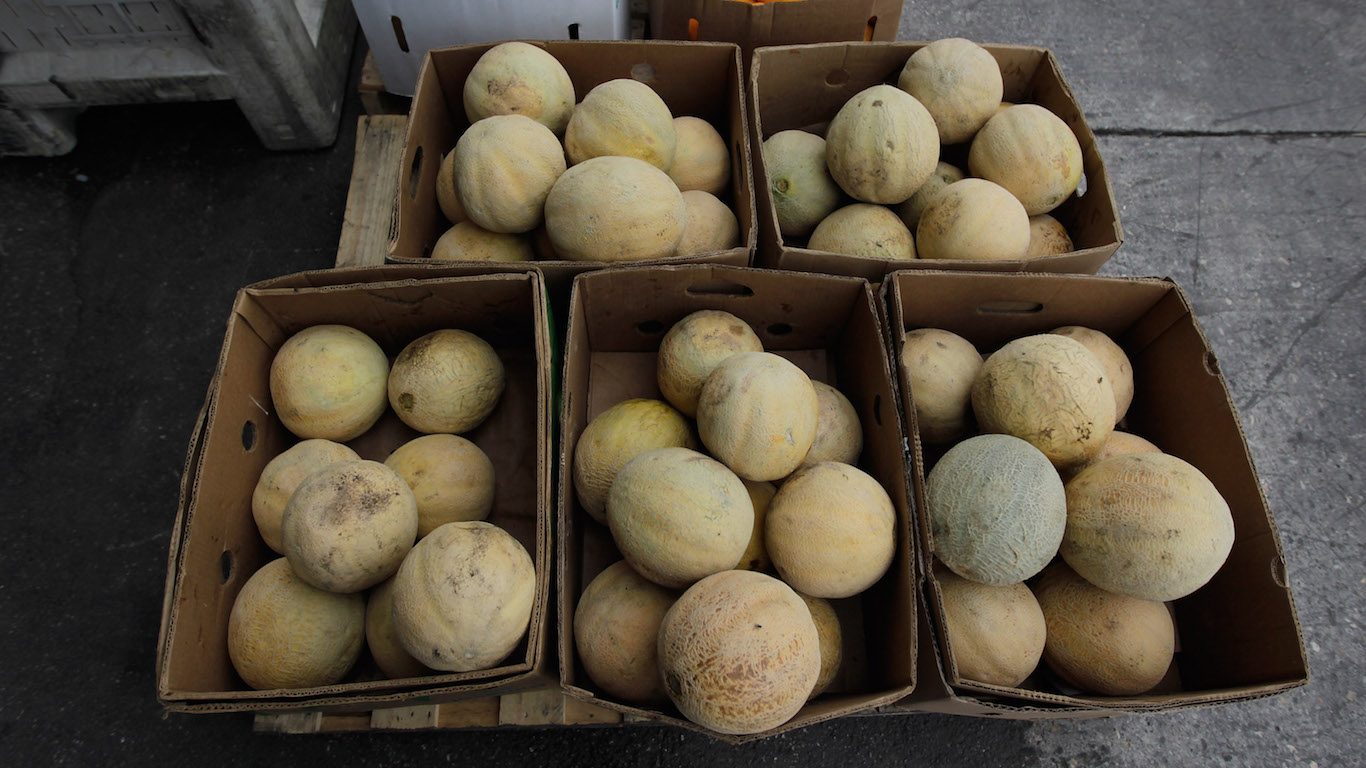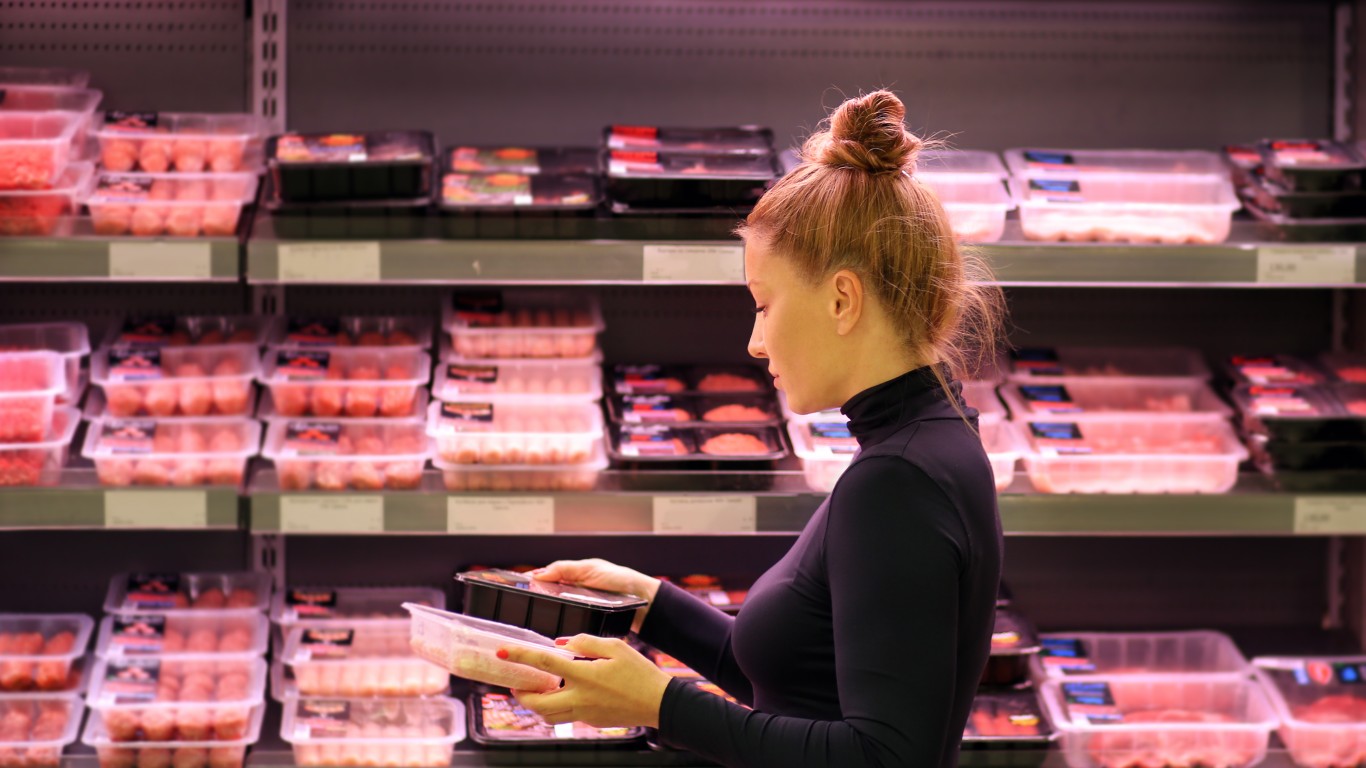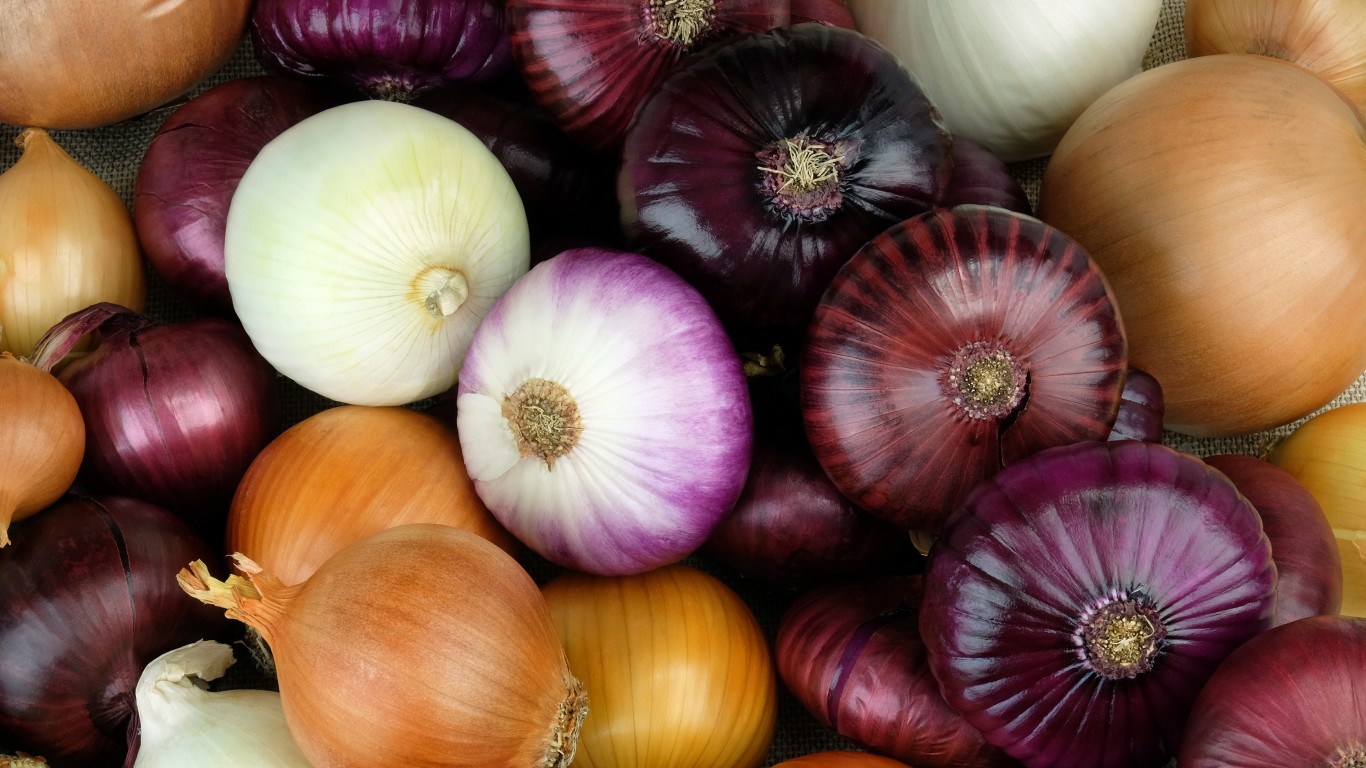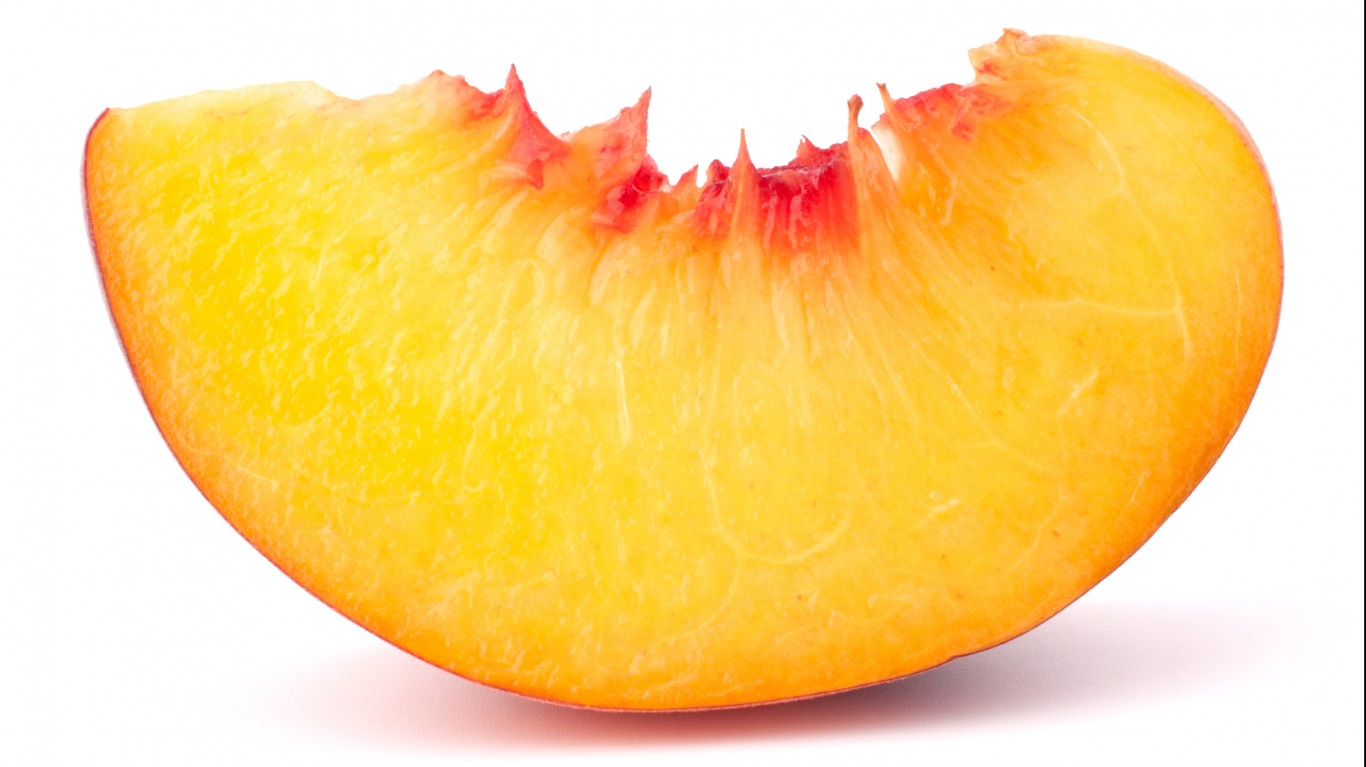Special Report
7 Grocery Items Most Likely to Cause Food Poisoning, According to FDA Data

Published:

Each year, about 48 million people get sick from foodborne bacteria and viruses, leading to nearly 130,000 hospitalizations and 3,000 deaths, according to Consumer Reports. Although many recover on their own, certain demographics – including people with compromised immune systems, the elderly, children under 5, and those who are pregnant – are at greater risk of falling seriously ill due to food poisoning. (These are 25 foods that can make you sick or kill you.)
To compile a list of foods most often linked to food poisoning, 24/7 Tempo reviewed a report by Consumer Reports in which food safety experts looked at food recalls and foodborne disease outbreaks from 2017 through 2022. Data came from the Centers for Disease Control and Prevention, the Food and Drug Administration, and the Department of Agriculture. Foods that were recalled because of allergens or extraneous materials like the plastic were excluded. Information on symptoms and potential dangers of various kinds of food poisoning came from the CDC and the Mayo Clinic.
The pathogens that most commonly cause food poisoning – listeria, salmonella, and E. coli – can be killed when food is properly cooked. Accordingly, some of the most common vectors for illness are raw or processed foods that are typically eaten without heating, including salad greens, certain fruits, and deli products. Other vectors include poultry and meat that consumers may not cook to a safe internal temperature.
Click here to see the 7 grocery items most likely to cause food poisoning, according to FDA data
Much of the salmonella or E. coli contamination on produce, including field-grown lettuce, onions, peaches, and melons, as well as wheat that is then milled into flour, can be traced to nearby animal feedlots. Irrigation water may become contaminated with pathogens from cattle or poultry manure, as well as from wild animal droppings. Pathogens can also travel on the wind and contaminate crops.
Listeria, on the other hand, thrives in cool, damp environments and lives on processing equipment, not only in production facilities, but also in refrigerators and on cutting boards and meat-slicing machines. Some of the largest listeria-based recalls in 2021 were of salad mixes, which are processed at only a few production facilities across the U.S., where one contaminated batch of greens can spread listeria to hundreds of other products. (These are 20 major food recalls you should know about.)

Leafy greens
> Product recalled: Romaine lettuce and bagged salads
> Reason for recalling: E. coli, listeria
> Possible health dangers: E. coli and cause diarrhea, urinary tract infections, respiratory illness, and pneumonia; listeria can be fatal and can cause fever, fatigue, seizure, headaches, stiff neck
[in-text-ad]

Cheeses and deli meat
> Product recalled: Sausage, salami, ham, lunch meats, sliced cheeses, and soft cheeses
> Reason for recalling: Listeria
> Possible health dangers: Can be fatal; can cause fever, fatigue, seizure, headaches, stiff neck

Ground beef
> Product recalled: Packaged ground beef
> Reason for recalling: E. coli and salmonella
> Possible health dangers: Can cause diarrhea, fever, stomach cramps, vomiting, chills, headache, blood in stool; salmonella can cause diarrhea, urinary tract infections, respiratory illness, and pneumonia

Onions
> Product recalled: Red, sweet, and white onions
> Reason for recalling: Salmonella
> Possible health dangers: Can cause diarrhea, fever, stomach cramps, vomiting, chills, headache, blood in stool
[in-text-ad-2]

Chicken and turkey
> Product recalled: Chicken and turkey, including ground, whole, and parts
> Reason for recalling: Salmonella
> Possible health dangers: Can cause diarrhea, fever, stomach cramps, vomiting, chills, headache, blood in stool

Papayas, peaches, and melons
> Product recalled: Pre-cut cantaloupe, honeydew, and watermelon; whole cantaloupes, papayas, and peaches
> Reason for recalling: Salmonella
> Possible health dangers: Can cause diarrhea, fever, stomach cramps, vomiting, chills, headache, blood in stool
[in-text-ad]

Flour
> Product recalled: Uncooked flour; cookie, brownie, cake, and pancake mixes; and premade cake batter
> Reason for recalling: E. coli and salmonella
> Possible health dangers: Can cause diarrhea, urinary tract infections, respiratory illness, and pneumonia; salmonella can cause diarrhea, fever, stomach cramps, vomiting, chills, headache, blood in stool
After two decades of reviewing financial products I haven’t seen anything like this. Credit card companies are at war, handing out free rewards and benefits to win the best customers.
A good cash back card can be worth thousands of dollars a year in free money, not to mention other perks like travel, insurance, and access to fancy lounges.
Our top pick today pays up to 5% cash back, a $200 bonus on top, and $0 annual fee. Click here to apply before they stop offering rewards this generous.
Flywheel Publishing has partnered with CardRatings for our coverage of credit card products. Flywheel Publishing and CardRatings may receive a commission from card issuers.
Thank you for reading! Have some feedback for us?
Contact the 24/7 Wall St. editorial team.